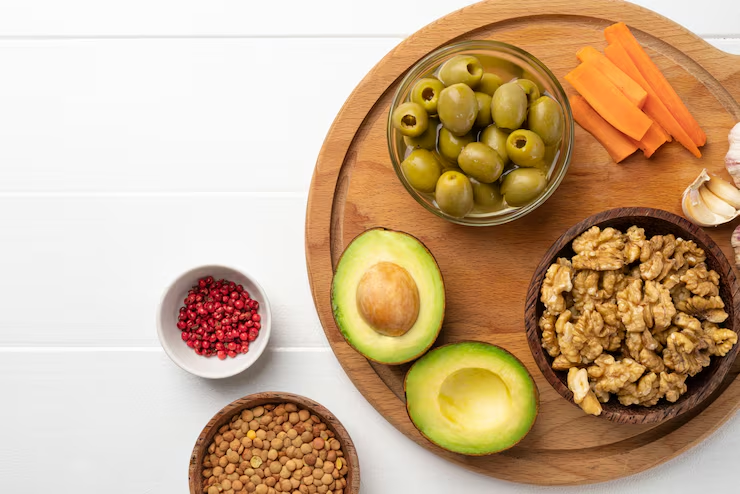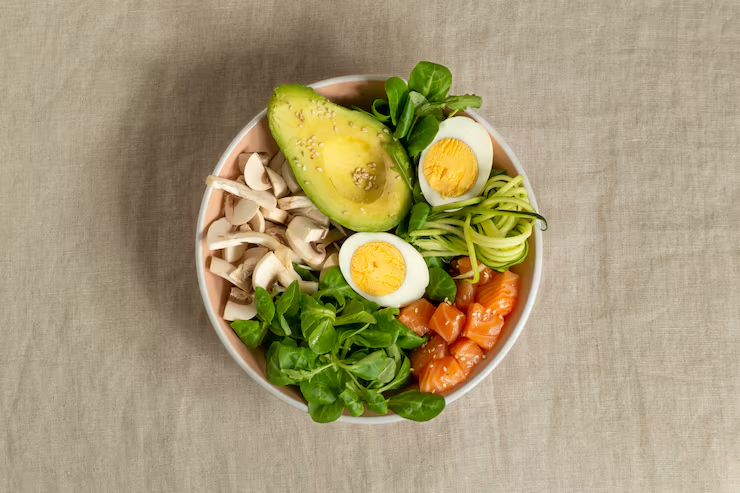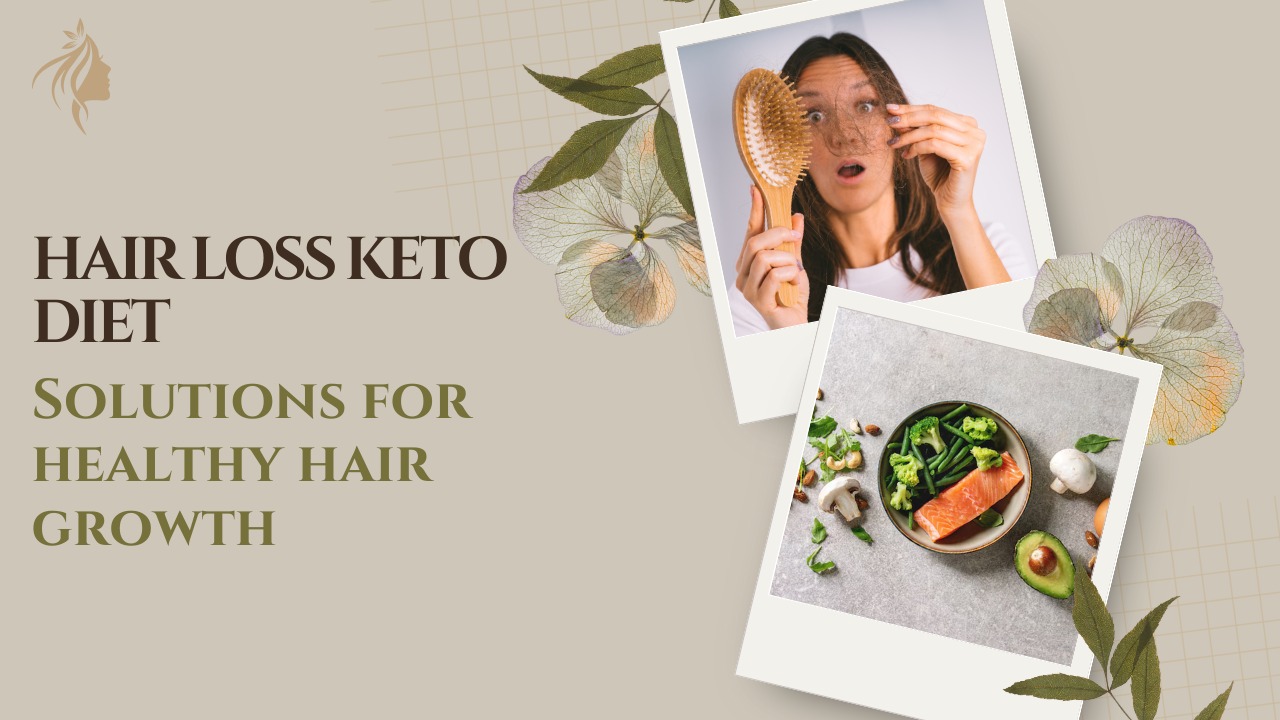Hair loss keto diet concerns are becoming increasingly common as more people adopt this low-carb lifestyle. The ketogenic diet, while effective for weight loss and metabolic health, can sometimes lead to unintended consequences like hair thinning. This can be alarming, especially when rapid weight loss or nutrient deficiencies are involved.
The hair loss keto diet connection is usually due to the body’s adjustment phase. When your body shifts from burning carbs to fat, it undergoes stress that can trigger temporary hair shedding known as telogen effluvium. Additionally, cutting out certain food groups may lead to reduced intake of vital nutrients like biotin, zinc, protein, and iron—all essential for healthy hair growth.
Thankfully, the hair loss keto diet side effect is often reversible. By ensuring a balanced intake of vitamins, staying hydrated, managing stress, and not restricting calories excessively, you can support your body’s transition and protect your hair health while staying keto.

What is the Keto Diet ?
The ketogenic diet is a low-carb, high-fat, and moderate-protein diet that forces the body into a state of ketosis. When the body enters ketosis, it burns fat for fuel instead of carbohydrates, leading to weight loss and improved energy levels. The typical macronutrient breakdown of a keto diet is approximately 70-75% fats, 20-25% protein, and only 5-10% carbohydrates.
While the keto diet has been shown to offer various benefits—such as weight loss, improved insulin sensitivity, and better mental clarity—its restrictive nature can sometimes result in nutrient deficiencies, which may contribute to hair loss. A significant decrease in carbohydrate intake can alter the body’s hormonal balance, and without the right support, this can negatively impact hair health.
Why Does the Keto Diet Cause Hair Loss ?
Hair loss keto diet concerns often arise when individuals notice increased hair shedding after starting the ketogenic lifestyle. One reason for this is that the body undergoes a significant metabolic shift during the early stages of keto. This sudden change can cause stress on the body, triggering a condition called telogen effluvium, where hair prematurely enters the shedding phase.
Another key factor behind hair loss on a keto diet is nutrient deficiency. When carbs are drastically reduced, it can lead to a lack of essential vitamins and minerals like biotin, zinc, iron, and protein—nutrients that are vital for healthy hair growth. Without these, the hair follicles may weaken, resulting in breakage and thinning.
Lastly, hair loss keto diet effects may be due to rapid weight loss. Sudden drops in body weight can shock the system and impact hormone levels, both of which influence hair health. The good news: it’s often temporary and reversible.
Hair loss is a common issue that people experience when they drastically change their diet. In the case of the keto diet, hair loss is often linked to several factors:
Nutrient Deficiencies: As you cut out many carb-rich foods, you might also reduce your intake of essential vitamins and minerals that are crucial for hair health, like iron, zinc, and biotin.
The Keto Flu: In the first few weeks of starting the keto diet, many people experience what’s known as the “keto flu.” This is a period of adaptation where the body adjusts to ketosis, often accompanied by fatigue, headaches, and even hair shedding.
Hormonal Changes: The reduction in carbohydrates can affect hormone levels, particularly thyroid hormones. Imbalances in thyroid function can contribute to hair thinning.
Stress: Starting a new diet can be stressful, and chronic stress is known to trigger hair loss. This stress-induced hair loss, called telogen effluvium, can occur when your body is in a state of high stress or undergoing significant changes.
When Does Hair Loss Occur on the Keto Diet ?
Hair loss keto diet experiences usually begin during the early phases of transitioning into ketosis. It doesn’t happen instantly but rather within the first one to two months after starting the diet. This occurs as the body adjusts to a lower carbohydrate intake and shifts into fat-burning mode. For many people, this temporary hair loss is a natural part of adapting to the keto lifestyle.
The most common form of hair loss seen with the keto diet is known as telogen effluvium. This condition causes more hairs than usual to enter the resting (telogen) phase of the growth cycle, eventually leading to increased shedding. The trigger is often a major stressor—including significant dietary changes like starting keto.
Fortunately, hair loss keto diet concerns are typically short-term. Once the body stabilizes and nutrient levels are restored, hair growth often returns to normal. With proper care and a balanced diet, most people can prevent long-term hair thinning.
How Does Keto Diet Affect Hair Growth ?
Hair growth is a complex process that requires an adequate supply of nutrients, including vitamins, minerals, and proteins. On the keto diet, the body’s nutritional needs change, and deficiencies in certain nutrients can disrupt the hair growth cycle. Additionally, the high-fat nature of the keto diet can also impact hormone levels, which in turn can affect hair follicles.
However, the keto diet doesn’t necessarily have to result in hair loss. By ensuring you are meeting all your nutritional needs and adopting strategies to manage the transition to ketosis, you can help support healthy hair growth.
Top Tips to Prevent Hair Loss on the Keto Diet
Ensure Proper Nutrient Intake

Hair loss keto diet concerns often stem from one major factor: nutrient deficiencies. When switching to a low-carb ketogenic lifestyle, many people unintentionally cut out essential vitamins and minerals that play a vital role in hair health. Nutrients like biotin, iron, zinc, and vitamins A, D, and E are crucial for maintaining strong, thick hair.
To combat hair loss keto diet side effects, it’s important to plan your meals carefully. Focus on nutrient-dense, keto-friendly foods such as leafy greens, nuts, seeds, avocados, eggs, and fatty fish. These foods help replenish vital nutrients and support both overall health and hair growth.
Additionally, consider tracking your micronutrient intake or consulting a healthcare professional to determine if supplementation is needed. By ensuring your body gets all the nutrients it needs, you can minimize hair thinning while continuing to enjoy the benefits of ketosis. Balance is the key to success on any hair loss keto diet plan.
The first step in preventing hair loss is to ensure you are consuming adequate nutrients, including vitamins and minerals essential for hair health. These include biotin, vitamin D, iron, zinc, and magnesium. Low levels of these nutrients can lead to hair thinning and shedding.
Benefits: Proper nutrient intake supports strong, healthy hair follicles.
Ingredients: Eggs, leafy greens, nuts, seeds, fatty fish.
Balance Your Macronutrients Correctly
Hair loss keto diet concerns can often be linked to imbalanced macronutrient intake. On a keto diet, getting the right ratio of fats, proteins, and carbs is essential—not just for ketosis but also for supporting healthy hair growth. When protein intake is too low, your body may prioritize essential functions over hair health, leading to shedding or thinning.
To prevent this common hair loss keto diet issue, make sure you’re consuming enough high-quality protein daily. While fats are the primary fuel on keto, protein is vital for building and maintaining hair follicles. Include eggs, fatty fish, nuts, seeds, and plant-based protein sources to help meet your needs without exceeding your carb limits.
Monitoring your macronutrients ensures you’re not depriving your body of what it needs to thrive. A well-balanced keto plan can help you enjoy the benefits of fat burning while keeping your hair strong, full, and healthy over time.
It’s important to find the right fat-to-protein ratio on the keto diet. Too much protein can cause an excess of ammonia in the body, which may lead to hair loss. Stick to moderate protein levels and prioritize healthy fats.
Benefits: Keeps hair follicles nourished without stressing the body.
Ingredients: Avocados, olive oil, coconut oil, fatty fish.
Hydrate and Replenish Electrolytes
Hair loss keto diet concerns often arise due to dehydration and electrolyte imbalances that occur in the early stages of ketosis. When you begin a keto diet, your body releases more water and sodium, which can lead to deficiencies in essential electrolytes like magnesium, potassium, and sodium—key nutrients that also play a role in hair health.
Proper hydration is crucial to support nutrient delivery to your scalp and hair follicles. Aim to drink at least 8–10 glasses of water per day, and consider adding natural sources of electrolytes such as leafy greens, avocados, nuts, and seeds to your meals. You can also use keto-friendly electrolyte supplements if needed.
By staying well-hydrated and replenishing lost electrolytes, you support not only your body’s ability to stay in ketosis but also your hair’s ability to grow and remain strong. Addressing hydration is a simple but essential step in avoiding hair loss keto diet effects.
Electrolyte imbalances can worsen hair thinning. When on keto, you may need extra sodium, potassium, and magnesium to help maintain balance. Stay hydrated and consider adding electrolyte supplements to your diet.
Benefits: Keeps the scalp healthy and reduces the risk of hair shedding.
Ingredients: Bone broth, avocados, spinach.
Minimize Stress Levels

Hair loss keto diet concerns can be intensified by high stress levels. Stress is a well-known trigger for hair shedding, particularly a condition called telogen effluvium, where hair prematurely enters the resting phase and falls out more easily. When starting a new diet like keto, the changes to your routine and body can add to stress levels without you realizing it.
Managing stress is essential not only for your mental well-being but also for your hair health. Incorporate relaxation practices such as meditation, yoga, deep breathing, or even a daily walk in nature. Prioritizing sleep and maintaining a consistent sleep schedule can also significantly lower cortisol levels, the hormone responsible for stress.
By actively working to reduce your stress, you can improve your body’s hormonal balance, which supports healthier hair growth. Minimizing stress is a key part of ensuring that your transition to a hair loss keto diet does not negatively affect your hair.
Chronic stress is a major contributor to hair loss. Incorporating stress-reduction practices like yoga, meditation, or regular physical activity can help lower stress and prevent hair shedding.
Benefits: Stress management reduces cortisol levels, helping to minimize hair loss.
Ingredients: Adaptogenic herbs like ashwagandha.
Add Collagen to Your Diet
Hair loss keto diet concerns often arise due to nutrient deficiencies or lack of supportive compounds like collagen. Collagen is a structural protein that plays a vital role in maintaining hair strength, elasticity, and growth. On a keto diet, especially when carb intake is restricted, the body may lack certain amino acids necessary for natural collagen production.
Incorporating collagen into your diet can help bridge this gap. You can consume collagen-rich bone broth or opt for keto-friendly collagen peptide supplements. These support the hair follicles, promote scalp health, and improve overall hair texture. When combined with other key nutrients, collagen becomes a powerful ally against hair thinning.
By including collagen in your hair loss keto diet, you’re not only supporting your hair but also benefiting your skin, joints, and gut health. It’s a simple yet effective strategy to enhance the diet’s advantages while minimizing unwanted side effects like hair shedding.
Collagen supports hair structure and strength. Consider adding collagen peptides to your daily routine to support hair growth during your keto journey.
Benefits: Collagen helps strengthen hair strands and promotes growth.
Ingredients: Collagen powder, bone broth.
Incorporate More Healthy Fats

Hair loss keto diet concerns are often linked to imbalanced nutrition, particularly a lack of healthy fats. While the keto diet is high in fats, it’s important to choose the right kinds. Healthy fats nourish your scalp, support hormone balance, and provide essential fatty acids that promote stronger, shinier hair.
Incorporate sources like avocados, nuts, seeds, coconut oil, olive oil, and fatty fish (if non-vegan) to boost your intake of omega-3 and omega-6 fatty acids. These nutrients play a direct role in maintaining the integrity of hair follicles and preventing excessive shedding. They also support the absorption of fat-soluble vitamins like A, D, E, and K, which are vital for hair health.
Balancing your hair loss keto diet with nutrient-dense fats helps ensure you’re not just losing weight but also maintaining vibrant, healthy hair. Prioritize quality fats to avoid the nutritional pitfalls that can lead to hair thinning.
Omega-3 fatty acids are essential for scalp health and overall hair growth. Ensure you are consuming enough omega-3-rich foods to support your hair.
Benefits: Promotes strong, shiny hair.
Ingredients: Fatty fish (salmon, mackerel), flaxseeds, walnuts.
Avoid Crash Dieting
Hair loss keto diet concerns can often arise when individuals approach the keto lifestyle with a crash-dieting mindset. Rapid weight loss caused by extreme caloric restriction can shock the body, leading to temporary hair shedding known as telogen effluvium. While keto can naturally lead to quick results, it’s crucial to avoid overly aggressive dieting tactics.
Crash dieting deprives your body of essential nutrients like protein, zinc, iron, and biotin—each of which plays a vital role in maintaining healthy hair. The body prioritizes vital functions during nutrient shortages, and hair growth is not one of them, making your hair one of the first areas to suffer.
To avoid triggering hair loss on a hair loss keto diet, aim for steady, sustainable weight loss and focus on nourishing your body with balanced meals. A thoughtful approach helps you reap the benefits of keto while supporting healthy hair growth and overall wellness.
Rapid weight loss, especially through extreme calorie restriction, can trigger hair loss. Aim for steady, sustainable weight loss to give your body time to adjust and keep your hair healthy.
Benefits: Sustainable weight loss prevents unnecessary stress on the body.
Ingredients: Whole foods, balanced keto meals.
Consider Hair Supplements
Hair loss keto diet concerns often prompt individuals to explore the option of hair supplements. When your diet lacks essential nutrients due to restrictive eating patterns, supplements can help fill the nutritional gaps that may be contributing to thinning hair. Key supplements include biotin, zinc, iron, vitamin D, and B-complex vitamins—all known to support hair health.
While the ketogenic diet can be rich in healthy fats and low in carbs, it might sometimes fall short in certain micronutrients due to limited food variety. Supplementing with collagen and keratin-boosting nutrients can further support stronger, shinier hair. These compounds aid in rebuilding the hair shaft and maintaining follicle strength.
If you’re experiencing shedding on a hair loss keto diet, adding targeted supplements can be a smart strategy. However, it’s best to consult with a healthcare provider before starting any regimen to ensure you’re meeting your unique nutritional needs safely and effectively.
Supplementing with specific vitamins and minerals can support hair health. Biotin, zinc, and vitamin D can help replenish deficiencies and strengthen hair follicles.
Benefits: Promotes healthier hair growth and strengthens hair strands.
Ingredients: Biotin, vitamin D, zinc, iron.
Conclusion

Hair loss keto diet concerns often arise when individuals notice thinning or shedding after starting a ketogenic lifestyle. While the keto diet is praised for its weight loss and metabolic benefits, some people experience temporary hair loss during the transition. This is typically linked to rapid weight loss, calorie restriction, or a drop in essential nutrients.
Fortunately, the hair loss keto diet issue doesn’t have to be permanent. Ensuring you consume enough protein, healthy fats, and vital vitamins like biotin, zinc, and iron can help support hair health. Including a variety of nutrient-rich foods and possibly taking supplements may also prevent deficiencies that contribute to shedding.
By maintaining nutritional balance and taking a whole-body approach to health, you can enjoy the benefits of keto while minimizing unwanted side effects. With the right strategy, the hair loss keto diet challenge can be managed effectively, allowing you to thrive both inside and out.
FAQs
Q1. Does keto cause hair loss permanently ?
No, keto-related hair loss is typically temporary. It is a result of your body adjusting to a new diet. With the right nutrients and care, hair growth usually resumes after the adaptation period.
Q2. Can I reverse hair loss on keto ?
Yes, hair loss on keto can often be reversed by optimizing your diet, balancing your macronutrients, and adding the necessary vitamins and minerals.
Q3. What are the best supplements for hair loss on keto ?
Biotin, Vitamin D, Zinc, and Omega-3 fatty acids are some of the most beneficial supplements for supporting hair growth on the keto diet.
Q4. Is it normal to lose hair during the first month of keto ?
Yes, temporary hair shedding is common during the first month as your body transitions into ketosis. However, it should subside once your body adjusts.
Q5. Can I follow keto and still keep my hair healthy ?
Absolutely! With the right nutrition, hydration, and supplementation, it is possible to maintain healthy hair while on the keto diet.


